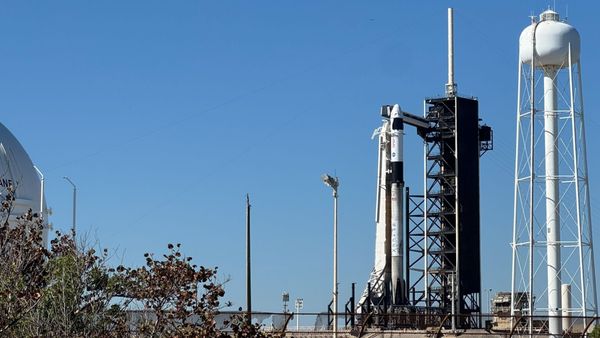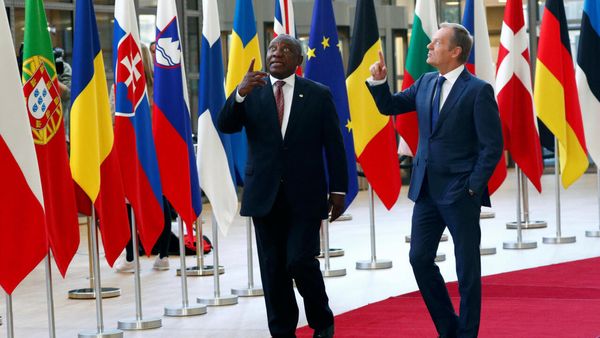
Five things you need to know before the market opens on Friday December 2:
1. -- Stock Futures Flat As Investors Eye November Jobs Report
U.S. equity nudged lower Friday, while the dollar extended declines against its global peers and Treasury yields dipped, as investors braced for a key November jobs report that caps a busy week for economic data releases in the world's biggest economy.
Softening inflation, weakening manufacturing activity and muted private sector hiring were all in evidence this week as investor sifted through a series of readings on the health of the U.S. economy and the impact of Federal Reserve rate hikes on underlying demand.
Fed Chairman Jerome Powell's suggesting that smaller rate hikes are likely to form the basis of the central bank's inflation fight going forward provided some decent risk sentiment, but questions over the fate of China's Covid policy, the ongoing Russian invasion of Ukraine and the odds of a near-term recession continue to test the market's bullish thesis.
That said, the S&P 500 has risen nearly 14% from its mid-October lows, a move that has effectively halved the benchmark's year-to-date decline, as investors bet that the Fed will be able to engineer a so-called soft landing for the U.S. economy.
Today's November jobs report, expected at 8:30 am Eastern time, will provide a stern test to that theory, with investors looking for solid gains in new hires paired with muted wage increases.
Bonds are poised for just such an outcome, with benchmark 10-year Treasury note yields easing to 3.524% in overnight trading, while the dollar index fell another 0.24% against its global peers to change hands at 104.462 in overnight trading.
Heading into the start of the trading day on Wall Street, futures contracts tied to the S&P 500 are indicating a modest 1.5 point decline while those linked to the Dow Jones Industrial Average are priced for a 2 point dip. The tech-focused Nasdaq is looking at an 8 point pullback.
Overnight in Asia, stocks ended the week modestly lower amid renewed speculation that China is reading to alter some of its stricter Covid rules, a move that could pave the way for a broader re-opening of the world's second largest economy later next year.
The region-wide MSCI ex-Japan index was marked 0.57% lower heading into the close of trading while Europe's Stoxx 600 slipped 0.24% to start the session in Frankfurt, but the benchmark is still on pace for its seventh consecutive weekly gain.
2. -- Wage Growth, Private Hiring In Focus As Job Market Cools
The U.S. economy likely added another 200,000 new hires last month, the Labor Department will report Friday, as hiring cools into the final months of the year but remains solid enough to tempt post-Covid job seekers back into the labor market.
Analysts are looking for a headline jobs gain of 200,000, down from the 261,000 recorded over the month of October, with unemployment holding steady at 3.7%. Average hourly earnings are expected to ease for a fourth consecutive month, to an annual rate of 4.6% from 4.7%, a level that would likely provide little concern that wage growth will stoke inflation pressures over the coming months.
"The problem for forecasters is that we have to estimate the aggregate impact of two different payroll stories at once, namely, the ongoing post-Covid hiring catch-up, which seems to be fading but is still positive, and the cyclical demand for labor, which likely is weakening in the wake of the Fed’s aggressive tightening," said Ian Shepherdson of Pantheon Macroeconomics.
3. -- President Biden Says Deal Avoids 'Christmas Catastrophe' Rail Strike
President Joe Biden said he will sign a bill aimed at preventing a "Christmas catastrophe" rail strike following a bi-partisan vote in the Senate late Thursday.
Lawmakers voted 80 to 15 to approve a House bill that will impose terms of a deal brokered by the White House in September between rail unions representing around 115,000 workers and freight train operators.
The bill would make it illegal for workers to strike, but would also impose terms of the September agreement, which includes pay increases, improved working conditions and 'peace of mind' with respect to healthcare benefits.
The strike itself, which was set go into effect as early las December 9, could cost the economy around $2 billion a day, shut down around 30% of the country's freight traffic, disrupt passenger rail networks and add to inflationary pressures by delaying the delivery of key energy, food and consumer goods.
"Working together, we have spared this country a Christmas catastrophe in our grocery stores, in our workplaces, and in our communities," Biden said in a statement. "I know that many in Congress shared my reluctance to override the union ratification procedures. But in this case, the consequences of a shutdown were just too great for working families all across the country. And, the agreement will raise workers’ wages by 24%, increase health care benefits, and preserve two person crews."
4. -- Tesla Unveils All-Electric Semi, Stays Mum On Price
Tesla (TSLA) shares slipped lower in pre-market trading after CEO Elon Musk unveiled the carmaker's long-delayed semi late Thursday, but provided little detail as to when it would it would begin mass production or how it would be priced.
Musk appeared on stage at a Tesla event in Nevada last night that lifted the curtain on the all-electric Tesla semi, which was first conceptualized in 2017 following a 100 unit order from PepsiCo (PEP).
Tesla, which pegged the cost of a Semi with a 500 mile range at $180,000 in 2017, provided no further details on pricing at the Nevada event, and Musk did not take questions from the audience.
Tesla shares were marked 0.1% lower in pre-market trading to indicate an opening bell price of $194.63 each.
5. -- Marvell Slumps On Q3 Earnings Miss, Muted Outlook
Marvell Technology (MRVL) shares slumped lower in pre-market trading after the chipmaker posted softer-than-expected third quarter earnings and a muted near-term outlook.
Marvel said current quarter revenues would likely hit $1.4 billion, with gross margins in the region of 49.2%, and non-GAAP profits of around 5 cents per share amid what CEO Matt Murphy described as a "changing demand environment" that will extend into next year.
For the three months endings in October, Marvel posted adjusted earnings of 57 cents per share, missing Street forecasts by 2 cents, on record revenues of $1.54 billion that to growth in cloud, 5G and automotive sales.
Marvell shares were marked 6.7% lower in pre-market trading to indicate an opening bell price of $42.35 each.







